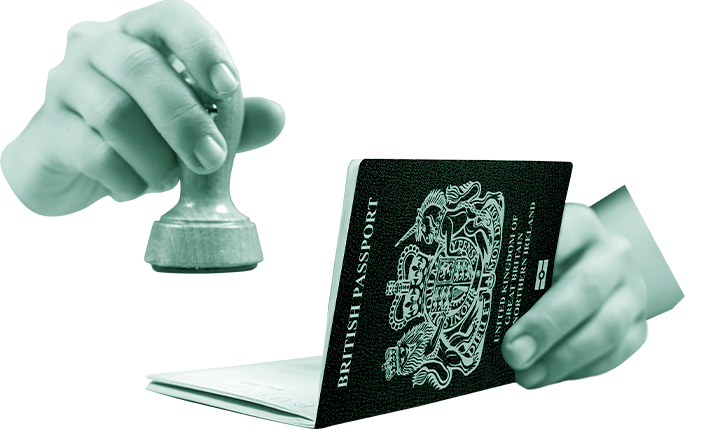Let's Talk

Need Help Urgently?
Call our 24 hour rapid response team now on 0333 311 1090
Request a callback
"*" indicates required fields


The Scale Up Sponsor Licence is a mandatory requirement for UK businesses looking to recruit skilled workers from overseas under the Scale Up route. This route offers enhanced flexibility compared to the fully-sponsored Skilled Worker visa, as the sponsorship requirement is limited to the first six months of employment. To be able to recruit workers from overseas under the Scale-Up route, the employer must have been granted a Scale Up Sponsor Licence by the Home Office.
The Scale Up route is only open to employers that can demonstrate sustained high growth, allowing them to recruit overseas nationals to work in the UK in highly skilled job roles. This makes Scale Up sponsorship a potentially valuable immigration tool for UK businesses looking to expand even more.
However, the Sponsor Licence application process demands extensive supporting documentation to be collated and submitted, and the employer must meet ongoing compliance duties while sponsoring workers. It is essential to seek expert guidance on recruiting and sponsoring Scale Up workers to ensure compliance with immigration rules and to maximise the benefits of this route.
The Scale Up Sponsor Licence is the permission granted from the Home Office for a UK-based business to recruit and sponsor a migrant worker on the Scale Up route. The Scale Up route allows businesses that are going through a sustained period of high growth to recruit overseas nationals to work for them in highly skilled job roles.
A migrant worker will only be able to apply for a Scale Up visa if they are offered a highly skilled job role by a qualifying UK Scale Up sponsor. The job role must be at graduate level or above, paying at least £36,300 per annum or the going rate for that job, whichever is higher. The worker must also meet an English language requirement and a financial requirement. The Scale Up Sponsor Licence is the key to unlocking the ability to recruit and sponsor workers under the Scale Up route.
It allows the business to issue a worker with a valid Certificate of Sponsorship (CoS) for them to be able to apply for a Scale Up visa to work in the UK in their sponsored role. The CoS is a unique reference number that confirms that the employer has offered the worker a genuine job and is willing to sponsor them under the Scale Up route. The worker must have the skills to enable the business to continue to grow, and they must be working in a job at the required skill and salary level for a minimum period of six months.
A Scale Up sponsor is an organisation that is classed as being in a sustained period of high growth and is approved by the UK Home Office to recruit overseas nationals to work in the UK in highly skilled job roles. To be eligible to apply for a Scale Up sponsor licence, the organisation must meet the definition of a qualifying Scale Up sponsor. There are two ways to meet this definition: the standard pathway and the endorsing body pathway.
The standard pathway allows UK Visas and Immigration (UKVI) to automatically assess the organisation’s employment growth and/or turnover growth based on information previously submitted to HMRC. The endorsing body pathway requires a Home Office-approved endorsing body to confirm in writing the organisation’s eligibility to apply for a Scale Up sponsor licence.
Both pathways have specific criteria that must be met. For example, the organisation must have a minimum of 10 employees at the start of the relevant three-year period and demonstrate annualised growth of 20% or more based on either the number of people employed or turnover. Meeting the requirements to become a Scale Up sponsor is essential for UK businesses looking to access the talent pool of skilled workers from overseas.
The standard pathway is one of the ways to qualify for a Scale Up sponsor licence. To be eligible under the standard pathway, the UK-based business must be able to show an annualised growth in employment or turnover of at least 20% for the three-year period prior to the application. The business must also have had a minimum of 10 employees at the start of this three-year period. When determining the sponsor licence application under the standard pathway, UK Visas and Immigration (UKVI) will securely access the business’s PAYE information and/or VAT return information submitted to HMRC. This data will be used to automatically assess whether the business meets the standard pathway definition.
The standard pathway is designed to assess the employment growth and turnover growth of the business. UKVI will check the number of people employed and the turnover growth to determine if the business meets the requirements for a Scale Up sponsor licence. If the business satisfies either check, it will pass the scale up assessment.
It is important for the applicants to ensure that their records with HMRC are accurate, up-to-date, and complete. Any gaps or discrepancies in the data may result in the failure of the scale up assessment.
Meeting the requirements under the standard pathway is essential for obtaining a Scale Up sponsor licence and being able to recruit skilled workers from overseas under the Scale Up route.
In addition to the general sponsor licence requirements, there are specific requirements that a business must meet to be eligible for a Scale Up sponsor licence.
These requirements include demonstrating sustained high growth and meeting the definition of a qualifying Scale Up sponsor. To qualify as a qualifying Scale Up sponsor, the business must have an annualised growth of 20% or more for the previous three-year period based on either the number of people employed or turnover.
The business must also have had at least 10 employees at the start of the relevant three years.
During the scale up sponsor licence application process, the details provided with the licence application will be matched to HMRC records to confirm the business’s solvency and history. If the details cannot be matched and confirmation cannot be obtained that the business is solvent, the application may be refused. Additionally, the business must have at least 37 months of history with HMRC, and there should be no gaps or periods without data within the 37-month assessment period.
It is the responsibility of the applicant to ensure the accuracy and completeness of their records with HMRC. If there are gaps or discrepancies in the data, the scale up assessment is likely to fail. Meeting the specific requirements is crucial for obtaining a Scale Up sponsor licence and being able to recruit skilled workers under the Scale Up route.

To apply for a Scale Up Sponsor Licence, the business must complete the online application form and pay the relevant application fee to UK Visas and Immigration (UKVI). The application process is classified as a ‘Temporary Worker’ route for sponsor licensing purposes.
The first step in the application process is to register online by providing a name and email address. Once registered, a user ID will be displayed, which can be used to log on to the licence application system. A password will be sent separately by email.
The application form requires the business to provide various information, including Companies House reference number (if applicable), Unique Taxpayer Reference (UTR) number, and VAT registration number. The business must also provide all relevant PAYE reference numbers through which it pays its employees.
It is important to provide accurate and complete information in the application form. The applicant may not need to send any documents in support of their application, as UKVI can check most of the information online. However, in some cases, the applicant may need to provide evidence of registration and inspection by a regulatory body, if applicable.
The application fee for a Scale Up Sponsor Licence is £536, and the fee to assign a Certificate of Sponsorship (CoS) is £25 for each worker. Additionally, if applying under the endorsing body pathway, an additional fee may apply. Meeting the application requirements and submitting a complete and accurate application is essential for obtaining a Scale Up Sponsor Licence and being able to recruit and sponsor skilled workers under the Scale Up route.
The cost of a Scale Up Sponsor Licence includes the application fee and the fee to assign a Certificate of Sponsorship (CoS) to a prospective worker. The application fee for a Scale Up Sponsor Licence is £536. The fee to assign a CoS is £25 for each worker.
It is important to note that if the business is applying under the endorsing body pathway, an additional fee may apply to the endorsing body. In addition to these fees, there is no Immigration Skills Charge for the Scale Up route.
It is also worth considering that some UK sponsors may choose to offer to pay the application costs for prospective new recruits to enable them to apply for a Scale Up visa. The cost of applying for a visa includes the visa application fee, the annual healthcare surcharge to access the NHS, and proof of personal savings. However, the sponsor can certify maintenance to cover the financial requirement on behalf of the worker.
The cost of a Scale Up Sponsor Licence and the associated fees are important considerations for UK businesses looking to recruit skilled workers from overseas. It is important to budget for these costs and seek expert advice to understand the full financial implications and requirements of the Scale Up route.
To be eligible for a Scale Up visa, an overseas national must meet specific requirements set by the UK Home Office. These requirements include having a genuine job offer at the required skill level, being paid at least £36,300 per annum or the going rate for the occupation code, and being expected to work for the UK sponsor for a minimum of six months. Additionally, the worker must speak, understand, read, and write English to the required minimum standard, which is level B1 or above on the Common European Framework of Reference (CEFR) for languages.
The worker must also have sufficient funds to support themselves upon arrival in the UK, which is at least £1,270. To be sponsored under the Scale Up route, the worker must meet the eligibility requirements and have a valid Certificate of Sponsorship (CoS) from an approved Scale Up sponsor. The CoS is a unique reference number that confirms that the employer has offered the worker a genuine job and is willing to sponsor them under the Scale Up route.
It is important for both the employer and the worker to meet the requirements of the Scale Up route to ensure a successful visa application. The employer must be able and intend to offer employment that meets the skill level and salary requirements for this route, while the worker must have the necessary skills and meet the English language and financial requirements. Meeting these requirements is essential for obtaining a Scale Up visa and being able to work in the UK under the Scale Up route.
Restrictions with scale up sponsorship include the need to adhere to specific criteria for sponsoring workers, such as meeting salary thresholds and job requirements. Additionally, sponsors must comply with visa regulations and reporting duties to maintain their sponsorship status.

After six months of Scale Up sponsorship, the worker is no longer sponsored by the original employer. Even if the worker continues to work for the same employer, the sponsorship ends after this period. However, the worker can continue working for their original employer without being sponsored. During the first six months of sponsorship, the employer must meet reporting duties, such as informing UK Visas and Immigration (UKVI) if the worker is absent from work without permission or if there are any significant changes to the nature of their role or salary.
At the end of the six-month period, the original sponsor is relieved of any further sponsorship duties. The worker can continue working for their existing employer without sponsorship or even change jobs or employers without requiring renewed sponsorship as long as they continue to meet the relevant requirements of the Scale Up route.
This flexibility allows the worker to continue contributing to the employer’s growth and potentially explore new opportunities within the UK job market. For the employer, it is important to provide incentives for the worker to stay on after the sponsorship period ends, as the investment in recruiting and sponsoring a skilled worker can be significant.
Understanding what happens after six months of Scale Up sponsorship is crucial for both employers and workers to plan for the future and navigate the requirements of the Scale Up route effectively.
After two years of being granted permission to work in the UK under the Scale Up route, the worker has the option to make an unsponsored application to extend their stay for up to three years. They no longer require sponsorship from an employer, as long as their previous UK PAYE earnings were at least £33,000 per annum during at least 50% of their initial permission to stay on a Scale Up visa.
Qualifying earnings must have been recorded through PAYE and cannot come from other sources such as self-employment or overseas income. If the worker meets these requirements, they can continue living and working in the UK without sponsorship.
There is no limit on the number of times a worker can apply to extend their stay under the Scale Up route. After five years of lawful continuous residence in the UK on the Scale Up route, or in combination with other eligible routes, the worker may become eligible to apply for indefinite leave to remain, also known as settlement.
This provides the worker with long-term stability and the opportunity to settle permanently in the UK. However, it is important to note that the Scale Up route was not designed as a long-term solution for sponsoring migrant workers. The route is intended to help UK-based businesses access a wider pool of talent during a critical stage of their growth. Understanding the options and requirements after two years of Scale Up sponsorship is essential for both employers and workers to
plan for the future.
As a Scale Up sponsor licence holder, there are various compliance duties that must be met to ensure compliance with the Home Office’s immigration rules and maintain the sponsor licence. These duties include informing UK Visas and Immigration (UKVI) of the date a sponsored Scale Up worker starts working for the business.
This must be done as soon as possible by using the Home Office’s sponsorship management system (SMS) and reporting migrant activity. During the sponsorship period, the sponsor must also inform UKVI if the worker fails to start their employment, is absent from work without permission, or if there are any significant changes to the nature of their role or salary, or to the sponsor organisation itself. It is important to comply with these reporting duties to ensure that the sponsor remains in compliance with the immigration rules and maintains the sponsor licence. Failure to meet these duties may result in the revocation of the sponsor licence.
The sponsor must also keep records for each sponsored Scale Up worker for a minimum of one year from the date on which sponsorship ends. These records may be subject to inspection by UKVI, and it is important to maintain accurate and up-to-date records to demonstrate compliance with the sponsor duties.
Complying with the sponsor licence compliance duties is essential for maintaining the sponsor licence and being able to continue recruiting and sponsoring skilled workers under the Scale Up route. It is important to understand and fulfill these responsibilities to ensure a successful sponsorship and compliance with the Home Office’s requirements.
Are you an employer in the UK looking to hire skilled workers from overseas under the Scale Up route? Do you need expert guidance on the sponsorship process and compliance duties? Look no further, we are here to assist you. Our team of UK business immigration specialists is well-versed in the intricacies of the immigration system and can provide you with the expert advice you need. Whether you are applying for a Scale Up Sponsor Licence or need assistance with the application process, we have the knowledge and experience to guide you through the process.
Simply reach out to us through our enquiry form, and our immigration team will be in touch with you to provide the expert advice you need.
What is the scale up sponsor licence?
The scale up sponsor licence is the permission granted by the UK Home Office to a UK-based business to recruit and sponsor skilled workers from overseas under the Scale Up route. This licence allows the business to issue a worker with a valid Certificate of Sponsorship (CoS) for them to apply for a scale up visa.
The scale up route is designed for businesses experiencing sustained high growth, allowing them to recruit highly skilled workers from overseas to work in the UK. The scale up sponsor licence is a crucial requirement for employers looking to hire skilled workers under this route.
How do you become a scale-up sponsor?
To become a scale-up sponsor, a UK-based business must meet the criteria set by the UK Home Office. The business must demonstrate sustained high growth, either in terms of employment or turnover, over a three-year period. The growth must be at least 20% annually, and the business must have had at least 10 employees at the start of the relevant three years. The business can apply for a scale-up sponsor licence through the standard pathway, where the Home Office will assess the employment or turnover growth based on information previously submitted to HMRC.
Alternatively, the business can apply through the endorsing body pathway, where a Home Office-approved endorsing body will confirm the business’s eligibility to apply for a scale-up sponsor licence.
Does scale-up visa require sponsorship?
Yes, the scale-up visa requires sponsorship from a qualifying UK scale-up sponsor. A migrant worker can only apply for a scale-up visa if they have a highly skilled job offer from a qualifying UK scale-up sponsor. The scale-up sponsor licence is the permission granted by the Home Office to a UK business to recruit and sponsor a migrant worker on this route. The scale-up sponsor licence allows the business to issue a worker with a valid Certificate of Sponsorship (CoS) to apply for a scale-up visa and work in the UK in their sponsored role. The sponsorship requirement is limited to the first six months of employment.
How many years is scale-up visa UK?
The scale-up visa in the UK is initially granted for a period of two years. However, the worker is only sponsored for the first six months of their employment. After the initial six-month period, the worker can continue working for their original employer without being sponsored. They also have the flexibility to change jobs or employers without requiring renewed sponsorship, as long as they continue to meet the relevant requirements of the scale-up route. After the initial two-year visa, the worker can apply to extend their stay on the scale-up route for a further period of three years. There is no limit to the number of times they can apply to extend their stay on this route.
Do I need sponsorship certificate to switch to scale-up visa?
If an overseas national is currently in the UK on a different visa route and wishes to switch to the scale-up route, they will need a valid Certificate of Sponsorship (CoS) from a qualifying UK scale-up sponsor. The CoS is issued by the employer who has been granted a scale-up sponsor licence by the Home Office. The CoS enables the worker to apply for a scale-up visa to work in the UK in their sponsored role. It is a crucial requirement for switching to the scale-up route.
Who can sponsor a scale-up visa UK?
UK-based organisations that meet the criteria for a qualifying scale-up sponsor can sponsor a scale- up visa UK. To be eligible to apply for a scale-up sponsor licence and sponsor skilled migrant workers under this route, the organisation must meet the definition of a qualifying scale-up sponsor.
There are two pathways to meet this definition. The standard pathway involves the automatic assessment of employment growth and/or turnover growth based on information previously submitted to HMRC. The endorsing body pathway requires confirmation from a Home Office-approved endorsing body regarding the organisation’s eligibility to apply for a scale-up sponsor licence.
How do I sponsor a scale-up visa?
To sponsor a scale-up visa, an organisation must hold a valid scale-up sponsor licence granted by the UK Home Office. Once the organisation has obtained a scale-up sponsor licence, they can issue a Certificate of Sponsorship (CoS) to a prospective worker. The CoS is a unique reference number that the worker needs to apply for a scale-up visa. The organisation must meet the eligibility requirements for a scale-up sponsor licence, including demonstrating sustained high growth and complying with the general and specific requirements set by the Home Office. The organisation can apply for a scale-up sponsor licence by completing the online application form and paying the relevant application fee to UK Visas and Immigration (UKVI).
What Is the Difference Between Scale Up and Skilled Worker Visa?
The Scale Up route and the Skilled Worker visa are two different immigration routes in the UK. The main difference between the two is the sponsorship requirement. Under the Scale Up route, the sponsorship requirement is limited to the first six months of employment, providing flexibility for both the employer and the worker. On the other hand, the Skilled Worker visa requires ongoing sponsorship throughout the worker’s employment. The Scale Up route is specifically designed for employers experiencing sustained high growth, allowing them to recruit highly skilled workers from overseas. The Skilled Worker visa is a more general route that allows employers to sponsor workers with specific skills and qualifications.
How Long Does the Application Process Take?
The application process for a scale-up sponsor licence can vary in duration. The Home Office aims to process scale-up applications within five working days, which is significantly faster than the current eight-week target for other sponsor licences. However, the actual processing time can depend on various factors, including the complexity of the application and the volume of applications being processed at the time. It is recommended to submit the application well in advance of the intended start date of sponsorship to allow for any potential delays. It is also important to ensure that all required documentation is provided accurately and completely to avoid unnecessary delays in the application process.
Can I Switch from Another Visa to the Scale Up Route?
Yes, it is possible to switch from another visa route to the scale up route.
However, certain requirements must be met. If an overseas national is currently in the UK on a different visa route and wishes to switch to the scale-up route, they will need a valid Certificate of Sponsorship (CoS) from a qualifying UK scale-up sponsor. The CoS is issued by the employer who has been granted a scale-up sponsor licence by the Home Office. The worker must meet the eligibility requirements for the scale-up route, including having a highly skilled job offer and meeting the required skill level and salary level for the job role. The worker can then apply for a scale-up visa to work in the UK in their sponsored role.
What Happens if Compliance Duties Are Not Met?
As a scale-up sponsor licence holder, there are compliance duties that must be met. Failure to meet these duties can result in the revocation of the sponsor licence. Compliance duties include informing UK Visas and Immigration (UKVI) of the worker’s start date, reporting any changes to the worker’s role or salary, and keeping records of each sponsored worker. It is important to ensure that all reporting obligations are met and that accurate records are kept. Non-compliance with these duties can have serious consequences for the sponsor, including the loss of the ability to sponsor workers under the scale-up route.
Are There Any Restrictions on the Type of Businesses That Can Apply?
There are no specific restrictions on the type of businesses that can apply for a scale-up sponsor licence. The scale-up route is open to businesses that can evidence sustained high growth and meet the eligibility requirements set by the UK Home Office. Any UK-based business that meets the criteria of a qualifying scale-up sponsor can apply for a scale-up sponsor licence. The focus is on the business’s growth and ability to offer genuine employment to highly skilled workers. The specific requirements for a scale-up sponsor licence include demonstrating annualised growth of at least 20% and having at least 10 employees at the start of the relevant three years.
We are always happy to talk about any legal concern you may have regarding criminal law matters.
Get In Touch

Call our 24 hour rapid response team now on 0333 311 1090
"*" indicates required fields
"*" indicates required fields